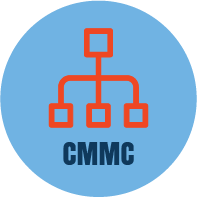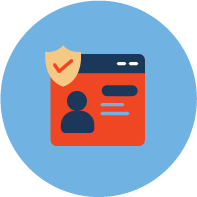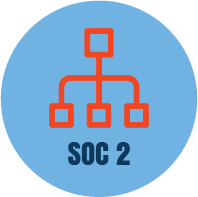Vulnerability Scans: Only Part of the Equation
July 3, 2024
There are two primary ways we see companies manage vulnerabilities… one of them significantly riskier than the other.
Reactive strategies rely on a problem to arise before taking action. This makes reactive the riskier option of the two, hopefully for obvious reasons. Using a reactive strategy is like waiting for an electric bill to tell you that a door has been left open. By the time you get the memo, the damage has already been done.
On the other hand, proactive strategies actively seek potential weaknesses and do everything possible to run a secure program before a problem occurs. Closed door. Locks engaged. And maybe an alarm system to keep bad actors out.
We work with organizations who work very hard to be less vulnerable. In fact, they spend a lot of time and money trying to protect themselves from all kinds of threats.
So, how do you know which strategy you are currently engaging? And how do you make the shift to the less risky one?
- Inventory: Establish a comprehensive, up-to-date list of all your software, its components, version numbers, and other key data points. Create processes and assign someone the responsibility of maintaining this list and hold them accountable to its accuracy. It’s hard to maintain security if these systems are not showing up on anyone’s radar.
- Patching: Ensure your processes include patching and keeping all software up to date on a cadence separate from vulnerability scanning. Set up a regular patching schedule and stick to it. Patching isn’t just about remediating vulnerabilities; it’s about fixing bugs and unlocking new features in addition to critical updates.
- Support: Keep an active relationship with your software representatives including established communication mechanisms to ensure you receive notifications of the latest updates. Clear communication with the source will help you ensure these valuable updates are known and made.
Ensuring these activities are part of your process will strengthen your cyber program and also help you sleep a little easier at night knowing you’re using best practices to run foundational parts of your security.
Let’s lock those doors before the burglars come knocking, shall we?
You May Like These Posts
Security Awareness Training – Social Engineering
Bridging the Gap: Why Cybersecurity Tools Alone Aren’t Enough
Security Awareness Training – Artificial Intelligence & Emerging Security Risks
Internal or External Resources? YES!
Building Customer Trust in the Digital Age: Evolution, Importance, and Observations from the Field
Security Awareness Training – Verizon 2025 Data Breach Investigations Report
The Difficulties of People Taking Ownership
Security Questionnaires: You Can’t Just Blame the Intern
CMMC Compliance: Cutting Through the Confusion
CMMC, Compliance, Events, GRC, Top Posts
- 1
- 2
Post A Comment
Don't gamble with compliance success.
Find out where you stand with a
GRC Health Check Now.

Most companies look at
their cybersecurity
piecemeal, inadvertently
putting themselves at risk.
With Hotman Group, we
approach cyber security
strategically, with a plan so
you can be fully protected.
Hotman Group is an SBA
Certified Woman-Owned Business
Hotman Group, LLC
Fort Worth, TX
Privacy Policy | Terms of Service | All Rights Reserved © Hotman Group, LLC










